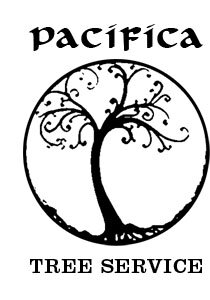Tree to the Sea
Following in the ways of his teachers, Carlos Kuhn, who resides in Āhualoa, has many similarities to the ways Stone (and Russell) have developed into wooden shapers. A tree trimmer in his mid 20s, Kuhn carries with him a board-shaping motto, “Bringing the tree to the sea.”
“I first took part in shaping a wooden board at Waimanalo beach with Uncle Pohaku [Stone],” said Kuhn, who became interested in wooden boards after a visit to Bishop Museum. “I like people who aren’t afraid to share knowledge. People who want to see other people strive.”
Studying at O‘ahu’s Marine Educational Training Center, he learned small-vessel fabrication and manufactured molded fiberglass canoes and a variety of custom composite parts. But, after the “seed was planted,” Kuhn returned to tree trimming, the occupation of his father when the young shaper was a boy. He stayed involved, however, with Stone’s shaping clinics organized in conjunction with non-profits aimed at sharing craftsmanship skills with Big Island children, and he quickly became enthralled with the beauty of shaping.
“Old boards have the most gradual tapers. Some were cumbersome for sure, but others were just the opposite. It had to do with the shaper and his experience in that time. Every board is an evolution of a mind in time. Kanaka had every tool at his disposal and already created all functional shapes used for riding this ocean. I don’t doubt that many would be considered artwork by today’s standards,” he said.
Harvesting the trees he fells, Kuhn utilizes what his clients discard. “We started using our resources to create functional artistry, which pays respect to the skills of older generations,” said the shaper, who has donated eight of his 10 boards, like the one on display at the new Eddie Aikau Restaurant in Waikoloa. “There is empowerment in giving someone the tools to create something to ride on. You can create a straight connection through the shaping of the board to its life from the mountain to the sea.”
Kuhn has kept a written account of all the boards he has made (as has Russell), describing in detail where the tree was felled, the type of tree (he has also shaped nontraditional boards out of mango and other local woods), the milling, the spline drawing, the rough shaping, the planning (with hand and power tools), sanding and finishing with both kukui nut and tung oil.
One plank Kuhn shaped was part of a dead wiliwili tree that came from Moloka`i. He finished the board and named it “Kipu`upu`u,” a name he says was suggested by Aunty Linda Bertelmann. He lent the alaia to his friend Hualalai Keohuloa, who surfed the board at Waipi‘o Valley — an empowering experience for both surfer and shaper.
“Surfing wooden boards feels like nothing else; it takes a lot of skill, but you are more connected,” Kuhn said, describing the humbling experience. “Hualalai is a versatile rider. He’s in tune with the ocean. In shaping these planks I have made relationships along the way and I get to see the trees make a connection when surfed in this ocean by friends.”

